Story
"I was 12 and had an accident when using toilet paper as pads. An older man in the community saw and said I can use his place to wash. He began to give me money and buy me pads. He told me he liked me. I got pregnant at 14 and contracted HIV. I wanted death to take me." Afia.
Period poverty affects girls and women all over the world. Access to menstrual products, a timely menstrual education and the right to manage menstruation without shame or stigma, is essential.
But for many, this is not a reality. This is not just a potential health risk - it can also mean girls' education, wellbeing, and sometimes entire life is affected.
This was the case for Afia at the age of 12, now 19. Listen to part of her story below.
The Problem
Cost
Safe and affordable menstrual products are essential for all young girls and women. But around the world, millions can’t afford the menstrual products they need.
Just like in the UK, in Ghana sanitary pads also cost on average £1.50 - £2. However, minimum wage in Ghana is around £21 a month. Yes, you read that correct - £21 a month. So a packet of pads can cost up to 2 whole days of pay, having jumped from 5 cedes (30p) to 20-30 cedes (£1.50-£2) in 2 years. For families with many young girls, this is impossible to afford.
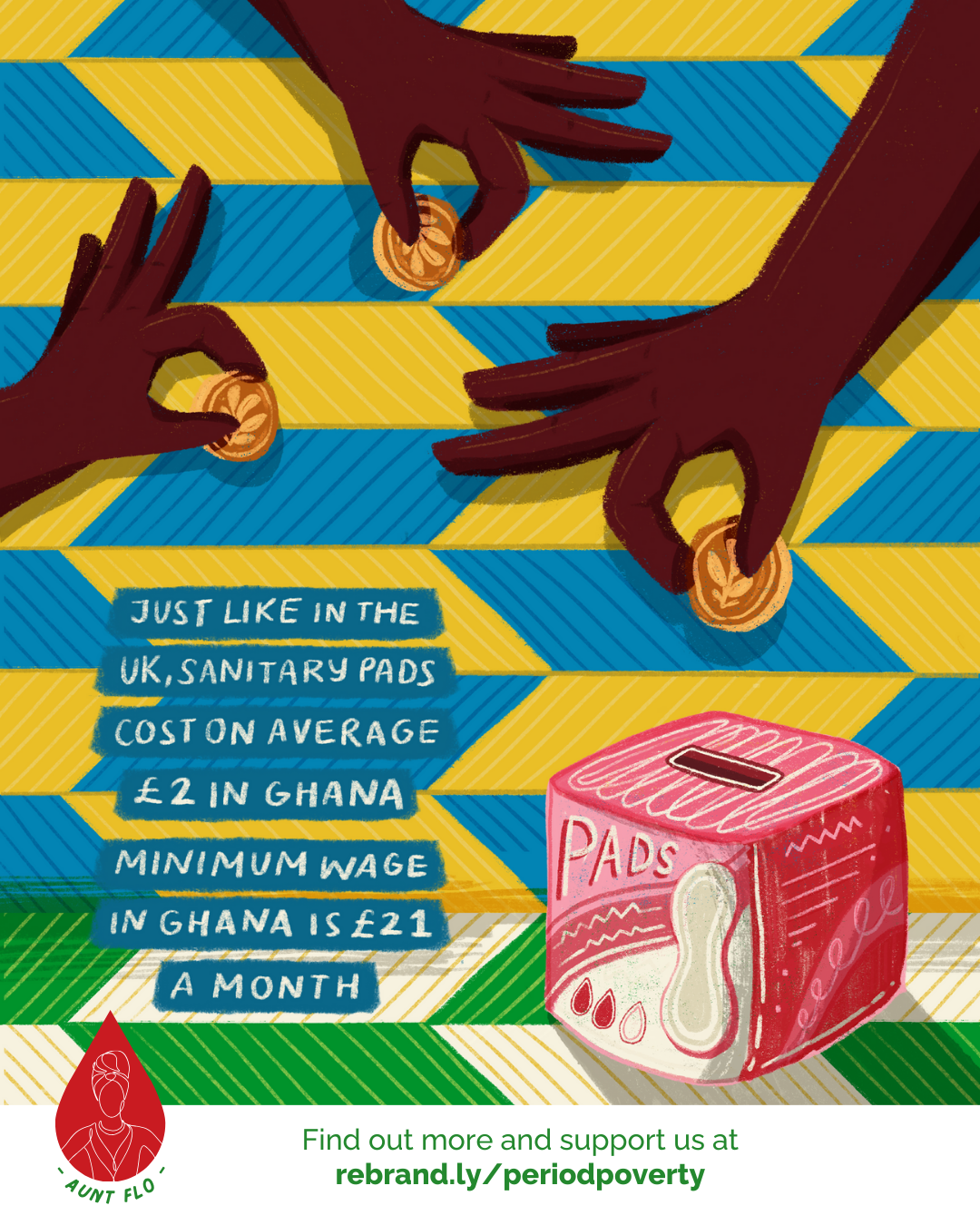
Alternatives
Because of this, many young girls are forced to resort to use unsafe materials as makeshift pads. Students and health-workers we surveyed spoke of materials such as dirty rags, toilet paper, newspaper, cement bags, plantain leaves and more. Our partners in the Northern region also reported worrying cases of dried cow dung being used.
This is a serious health risk, leading to infections and long term issues.
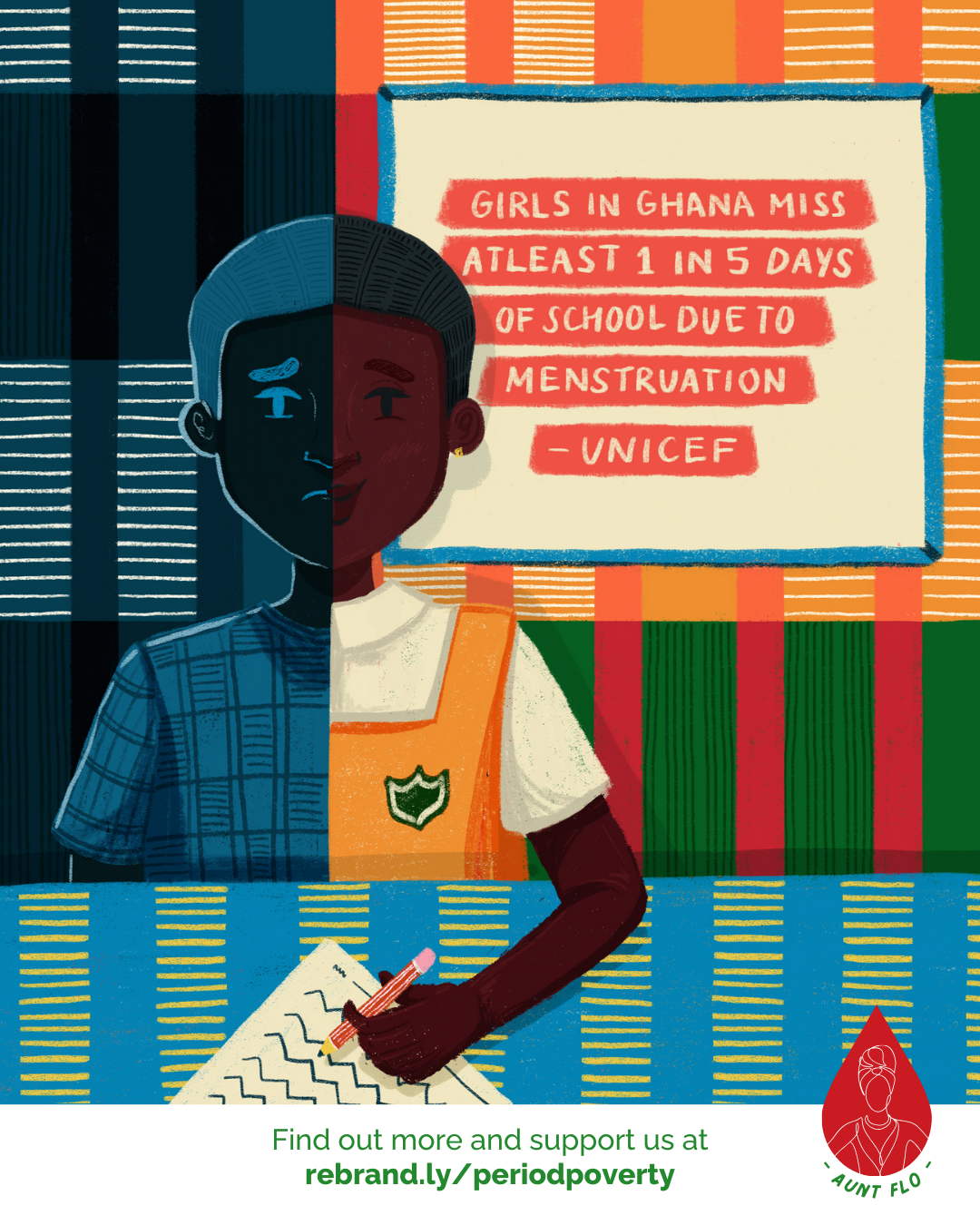
School
Period poverty and the stigma often surrounding menstruation stops many young girls from going to school - missing out on their education and the opportunities it brings them for their future.
Girls in rural communities in Ghana miss at least 1 in 5 days of school due to menstruation (UNICEF). In some districts, this is as high as 45% of missed school.
In the long run, the extortionate cost of pads and lack of education can have a devastating impact on a girl's life, leaving them extremely vulnerable to exploitation. Many girls, like Afia, are forced to exchange sex for pads.
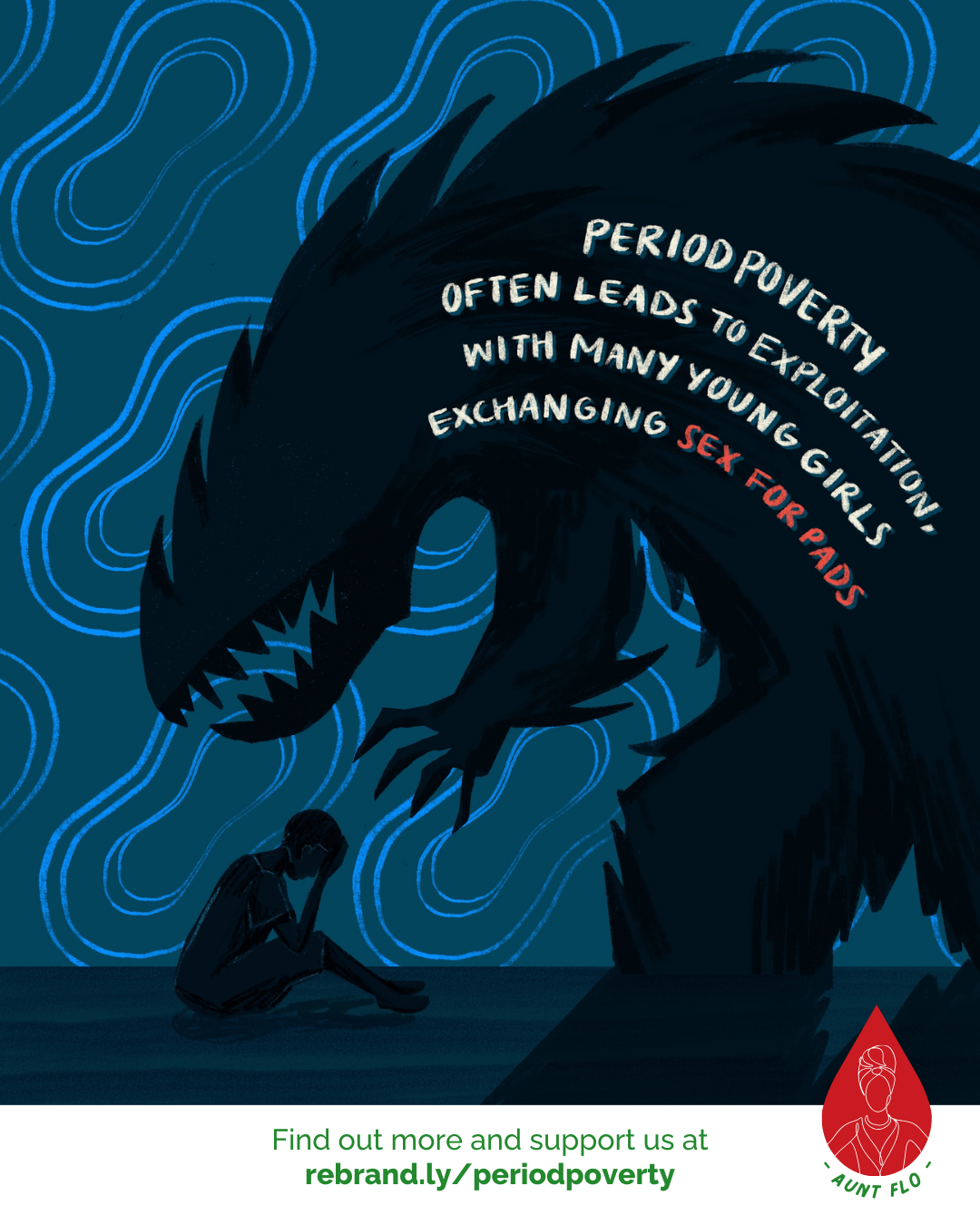
The Project - 'Aunt Flo'
Aunt Flo aims to ensure thousands of young girls in rural communities in Ghana stay in school and manage their periods with dignity.
Our project will have 2 main focus areas delivered in partnership with between 8-10 schools, subject to funding:
- sustainable reusable pads
- a long-term menstruation education and empowerment programme for schools
The Pads
We'll be working with local supplier and producer of pads, EcoPeriod https://ecoperiodafrica.com/ who use the finest organic materials with superior absorbency and have distributed over 30,000 pads in the last 12 months.
The Deluxe Kit which contains 4 maximum absorbent reusable pads, a dryer for discreet drying and carry pouch will be distributed to all female students at the partner schools, initially in one district - Atwima Kwanwoma. We will look to purchase at least 2,500-3000 Deluxe Kits, one kit per student, distributing a total of around 12,000 sanitary pads.
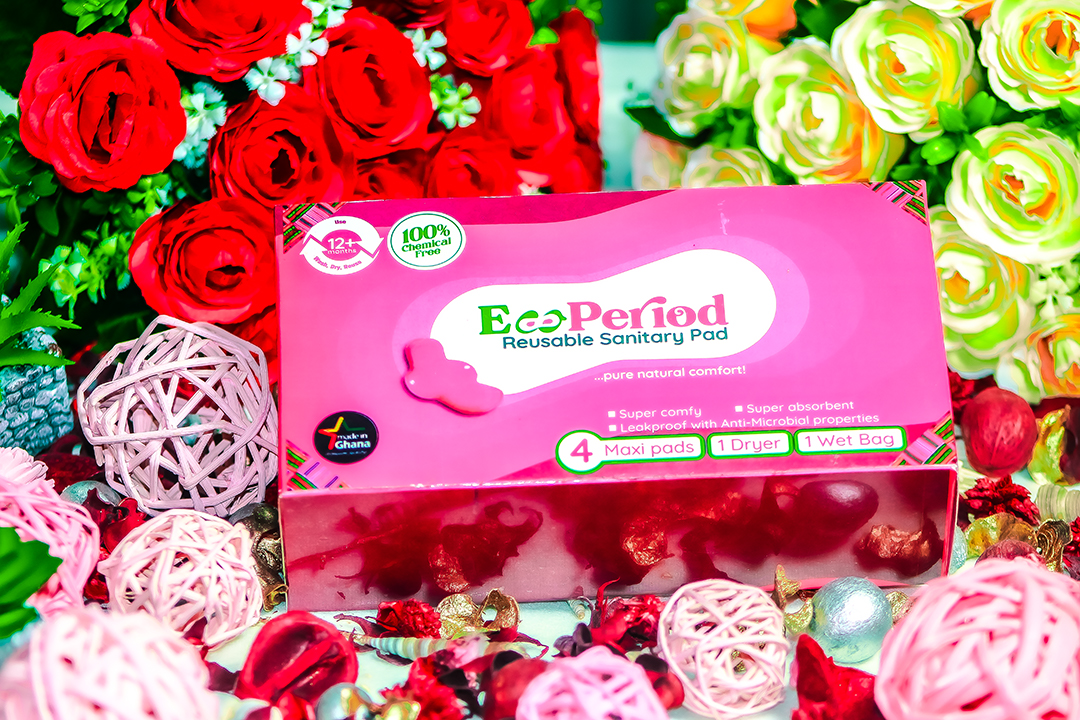
The Educational Programme
Distributing reusable pads is not the only solution. Regular education and partnerships with the local infrastructure will ensure long term change. Our Educational Programme will be delivered to all partner schools and will be a multi-pronged approach .
Firstly, we will work with specialists such as the Ghana Education Service, Health and Social Welfare Service and NGO's to deliver accurate menstrual education in 2 full day sessions in each school.
Secondly, we are developing an exciting Resource Pack which will be embedded into the school programme. Each school will be trained in delivering the pack throughout the year and beyond to ensure consistency and regularity - even in our absence.
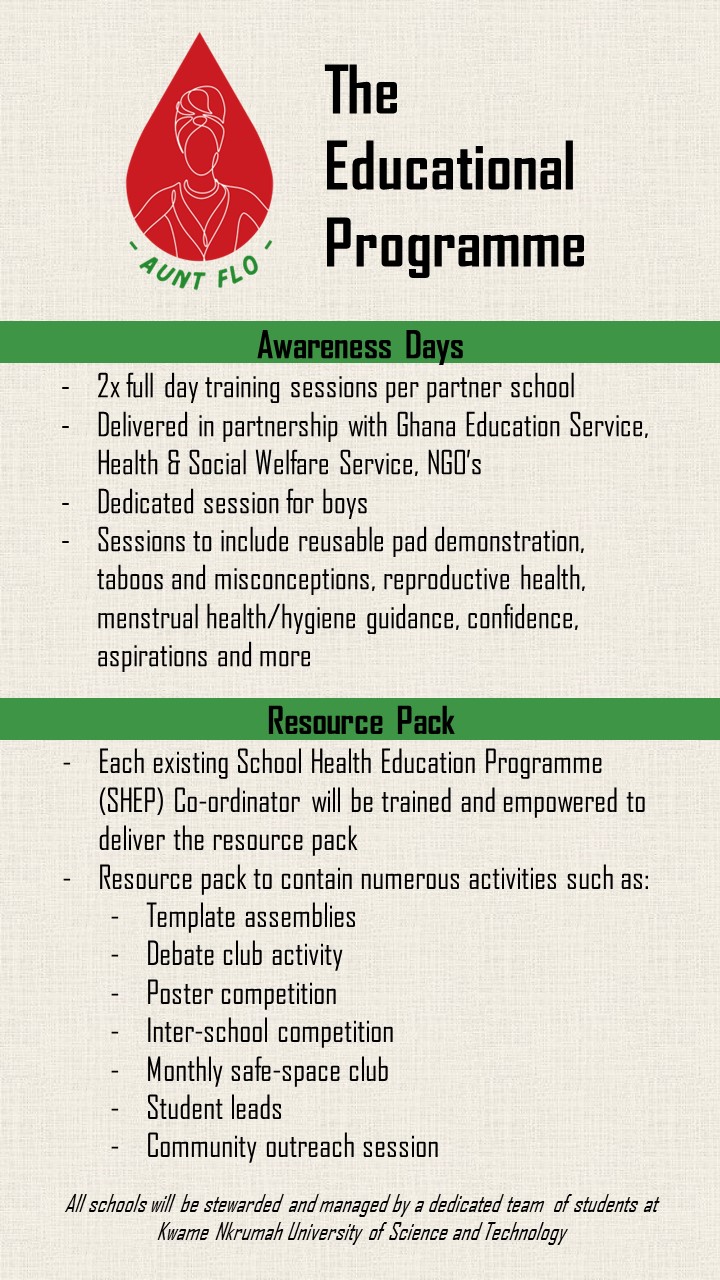
In future years, we will be expanding our Educational Programme to every school in the district and further, along with exploring long term options to empower the local community to develop sustainable reusable pad alternatives. .
Help us ensure over 3,000 young girls in rural communities in Ghana stay in school and manage their periods with dignity.
For more information, contact Umar on 07952407497.
Thank you :)
 Campaign by
Campaign by 